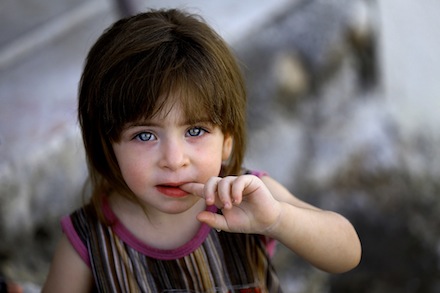
catholicherald.co.uk
We have all been overwhelmed by the harrowing pictures and tragic stories of the refugee crisis affecting Europe, individuals no less than governments. I heard on the World Service in the early hours of this morning that the EU, which has met again to discuss the problem, is proposing a quota system, more aid for the refugee camps in Turkey and Lebanon and an attempt to formally distinguish between economic migrants and Syrians fleeing civil war. Will this “plan” work? To me it sounds like more words rather than a solution.
Another aspect not addressed in UK newspapers has been raised in the parish bulletin for 20th September, of Fr George Rutler at the Church of St Michael, New York. He comments that “especially prudent is the counsel of bishops in places like Hungary and Slovakia, who know from long experience the consequences of confusing naivety with mercy. Ninety per cent of the current refugees are Muslim and the situation is complicated by the fact that ISIS boasts that there are many of their own people among them.”
It could be that this is merely an idle boast – but given the militant outreach of ISIS, surely we have no reason to feel complacent about increasing the possibility of terrorism within the territories of Europe.
Fr Rutler adds that “Christians are not a significant part of the immigrant tide flooding Europe from the UN camps in Syria, Jordan and Turkey because Islamic terrorists have driven them out of those camps for refusing to convert. An Hungarian bishop rightly insisted, and was criticised for it, that to most of the migrants Christians are second-class citizens. Europe and our own administration in Washington are virtually ignoring their plight, refusing to acknowledge that their Christian faith is the essential fact in the calculus of their suffering.”
You almost never hear of the plight of Christians as a group within the wider refugee question. But as fellow Christians we should be aware of it. Do we not owe some loyalty to them before our general humanitarian response to the other 90 per cent? This is not to be hard-hearted, but to recognise that we have deep and ancient affinities with persecuted Christians in the Middle East that we do not have with Muslims, because the former share our faith and the latter do not.
It has been said that after World War 2, Europe experienced a much greater refugee crisis than we are experiencing now; that between 12 and 14 million German speakers were expelled from Czechoslovakia, Poland, Hungary, Yugoslavia and Romania in 1945 and after. They were eventually resettled in West and East Germany – a record of which Germany should be very proud and which, I imagine, is partly the reason why Germany is so generous today towards this new wave of refugees, compared with other EU countries.
But it should also be pointed out that these post-war refugees were German-speaking Europeans with a Christian heritage; surely easier to assimilate, despite their colossal numbers, than a huge influx of non-European Muslims? Somehow it seems both uncharitable as well as politically incorrect to even raise this aspect of our current humanitarian crisis. Yet it made me reflect: in a sinking ship, who would I attempt to save first, members of my own family or strangers? The answer should be obvious. By the same token, are not persecuted Christians in the Middle East members of our spiritual family?